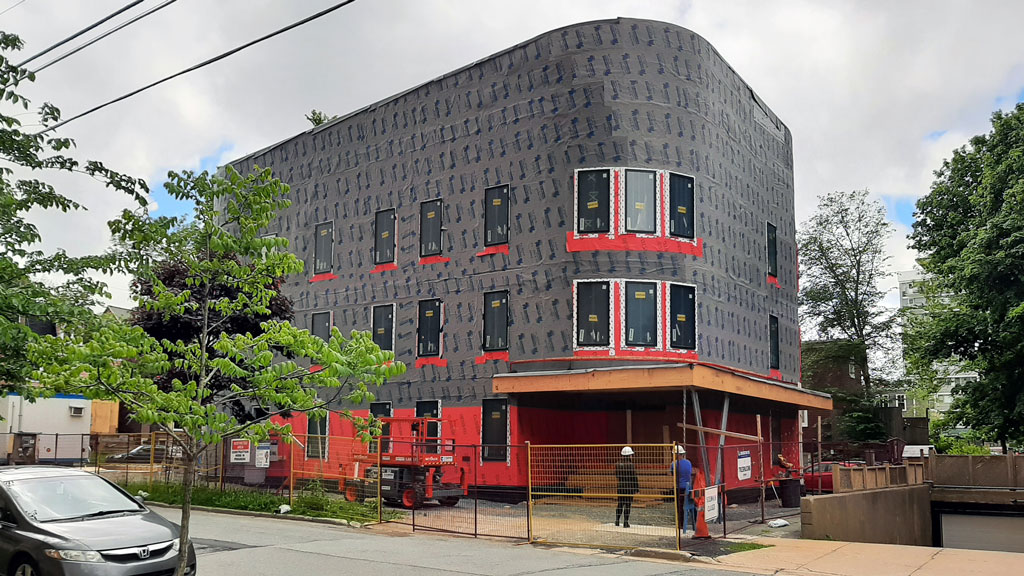Canada’s big-city mayors say they welcome the challenge of helping to solve Canada’s housing crisis but it’s clear they don’t yet have all the answers when it comes to employing one big new tool that has been bestowed upon them, the $4-billion Housing Accelerator Fund.
The fund was floated last year and the April 2022 federal budget offered more guidance but not much detail. The budget document said the five-year fund would aim to remove barriers and help municipalities build housing more quickly in an innovative manner.
The fund “could include support such as an annual per-door incentive for municipalities, or up-front funding for investments in municipal housing planning and delivery processes that will speed up housing development,” stated the budget.
The need is urgent, said Halifax Mayor Mike Savage, who’s the Federation of Canadian Municipalities’ (FCM) Big City Mayors’ Caucus chair, but at this stage, even with funding set to roll out in 2022-23, there are still lots of questions on how the funds will be spent.
“Four billion dollars, that’s still a lot of money even these days,” said Savage. “We all want to see results. We all want to get stuff built.
“We need housing, we need it quickly and we need it at least to a certain level to be affordable if we are going to meet the needs of a growing population.”
Among a dozen housing initiatives contained in the budget, the Housing Accelerator Fund with its large price tag was among those targeting municipal action most directly.
The government issued a statement to the Daily Commercial News this week indicating the fund “will construct 100,000 new homes by clearing up roadblocks to construction at the municipal level.”
The target is to be reached by 2027-28.
Savage said big city CAOs have been speaking to government officials to determine the best mechanisms to deliver results, and the mayors met with Intergovernmental Affairs, Infrastructure and Communities Minister Dominic LeBlanc during the FCM conference in early June to further define effective steps.
The idea is that cities will be allocated money where the need is greatest, to get the money out as fast as possible, Savage said.
The municipalities can work with provincial governments, the building community, the private sector, NGOs and housing advocates to get immediate solutions into the marketplace, he said.
“It’s very positive,” Savage said. “We don’t have all the details, but we have been providing input to the federal government, giving some suggestions as to how to make this $4 billion most effective on the ground.”
Among diverse proposals, one effective model Savage identified is that of the Rapid Housing Initiative (RHI), launched in October 2020 through the direct involvement of municipalities.
Adopting RHI principles along with boosting planning capacity on a human resources level and accelerating the approvals process through enhanced digitization are three ways municipalities could use Accelerator Fund money to bring more housing onstream, he said.
“What we’re saying is the Rapid Housing Initiative delivery formula works so there’s no need to reinvent the wheel,” said Savage.
RHI funding is often spent on municipal supportive housing projects, with modular housing enabling swift construction. Savage pointed out it went directly to municipalities with the stipulation that it be allocated immediately and the housing had to be created quickly as well.
Asked for comment, a spokesperson for the Office of the Minister of Housing, Diversity, and Inclusion said the ministry aims to address such roadblocks as the need for investments in staffing and technological support for municipal planning departments, application process improvements to reduce administration delays in approvals, zoning reform, infrastructure upgrades and policy development.
Savage said solutions need to be found from a wide range of sources and municipalities can contribute to the dialogue on issues not directly within their scope such as rising interest rates and the lack of labour to build the housing.
But the Accelerator Fund, in municipal hands, holds great promise.
“As municipalities, we are the people who do the planning around development,” he said. “I think there could be a real benefit to municipalities in terms of increasing our online capacity, our ability to do planning and development online, and also potentially in terms of human resources. We need more planners.”
A statement from the mayors at the FCM conference asserted their focus would be mainly on affordable housing. Savage said municipalities can address affordability by helping to increase supply in general and secondly by focusing on those in greatest need.
“Affordability is a relative term,” he said. “We need shelter for people who don’t have any income. We need deeply affordable housing for people who are struggling to find housing.”
Follow the author on Twitter @DonWall_DCN.











Recent Comments
comments for this post are closed